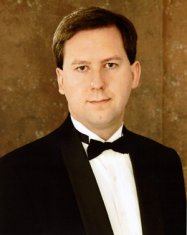|
Symphony
SRS SEASON ENDS WITH RESOUNDING TA-TA-TA-BANG
by Terry McNeill
Sunday, June 1, 2025
Symphony
YOUTHFUL VIRTUOSITY ON DISPLAY AT USO'S MAY CONCERTS
by Peter Lert
Saturday, May 17, 2025
Symphony
MYSTICAL PLANETS AND LIVELY GERSHWIN ORTIZ AT FINAL SRS CONCERT
by Peter Lert
Sunday, May 4, 2025
Symphony
VSO'S CONCERT MUSIC OF TIME, MUSIC OF PLACE
by Peter Lert
Sunday, April 27, 2025
Choral and Vocal
VOCAL ELEGANCE AND FIRE AT THE 222'S RECITAL APRIL 26
by Pamela Hicks Gailey
Saturday, April 26, 2025
CANTIAMO SONOMA SINGS AN INSPIRED GOOD FRIDAY MOZART REQUIEM CONCERT
by Pamela Hicks Gailey
Friday, April 18, 2025
DRAMATIC SHOSTAKOVICH SYMPHONY CLOSES PHILHARMONIC'S 25TH SEASON
by Terry McNeill
Sunday, April 13, 2025
LARGE COLLEGE OF MARIN AUDIENCE GREETS STOPHER ARTISTRY
by Terry McNeill
Saturday, April 5, 2025
Chamber
FRISSON DELIVERS SHIVERS OF DELIGHT
by Abby Wasserman
Sunday, March 30, 2025
OLD AND MOSTLY NEW IN SRS MARCH CONCERT IN WEILL
by Peter Lert
Saturday, March 22, 2025
|
 |
 Pianist Christopher Atzinger |
BALANCED VIRTUOSITY IN ATZINGER MMF RECITAL
by Terry McNeill
Saturday, July 16, 2016
Pianist Christopher Atzingerís Mendocino Music Festival recital July 16 in the small Preston Hall looked formidable on paper larded with what might be said to be ďnon festival, non summerĒ music.
There were no light Gershwin or Schubert dance works, and for some the six pieces from Brahmsí Op. 118 are winter compositions that need ample cold, rain and fog. However, the Minnesota-based pianist paid no attention to this pedantry and played an echt 118, with the opening Intermezzo full of sweep and drama, followed by the subtle rhythms of the Intermezzo in A. A highlight was the E-Flat final Intermezzo where he captured the mournful mystery of the work but his formidible pedal technique occasionally blurred the surging left hand line. A spot in the sun.
The center of the afternoonís program was the last work, Barberís massive Sonata (Op. 26) from 1949. The performance clocked in at just over 20 minutes, slower than the seminal Browning recording and much slower than the pyrotechnical Horowitz version. But the piece needs the ďairĒ that Mr. Atzinger provided to allow the lyricism to penetrate the many Fortissimo sections, especially in the opening Allegro. Adopting a furious pace in the skittish Vivace Mr. Atzinger easily moved into a ravishing reading of the Adagio, playing often the bell-like bass notes in pedal point and with a natural rise and fall of phrase.
In a period of pause he seemed to gird himself to do battle with the final movementís dissonant and complex fugue, and he conquered it. Clarity of voices is critical here, not easy to do with the volcanic bass chords, but all went to a thrilling and thunderous conclusion. The interpretation and virtuosity in the Barber were among the best I have ever heard.
The nearly full Preston audience responded with an ovation, and Mr. Atzinger played one encore, a new-age bagatelle where inane up and down progressions seemed fatuous after the magisterial Barber.
This one lapse in taste never pervaded the recitalís other performances of Mozartís B Flat Sonata (K. 570) and Chopinís F Minor Fantaisie, Op. 49. The Mozart was especially good with judicious tempos and a warm tone from the mellow house piano. Mr. Atzinger played three cultivated ritards in the opening Allegro that demonstrated that he was not bound to a strict classical interpretation, and the following Adagio his control of gradations of sound and several novel ďturnĒ figurations were superb. The Allegretto featured contrapuntal lines and spicy accented dissonances, understated but always telling.
The Chopin Fantaisie received a performance heavy on vocal statements, as the best Chopin always should. The famous heroic second theme was played with ardor and care, and the march sections at a fast clip. Changing gears, Mr. Atzinger played the Choral part with an unusual differentiation of voices, the main themeís repeat quite fast and in a romantic gesture held the damper pedal lovingly before the three last phrases.
Leading to intermission was a Toccata from Canadian composer Pierre Jalbert, composed in 2001 and sounding like a required piano competition piece. But it was no less interesting for that, and though clamorous at times it had whiffs of the Ligeti Etudes. Mr. Atzingerís command of left-hand block chords mixed with swirls of ringing right-hand notes was intoxicating.
|
